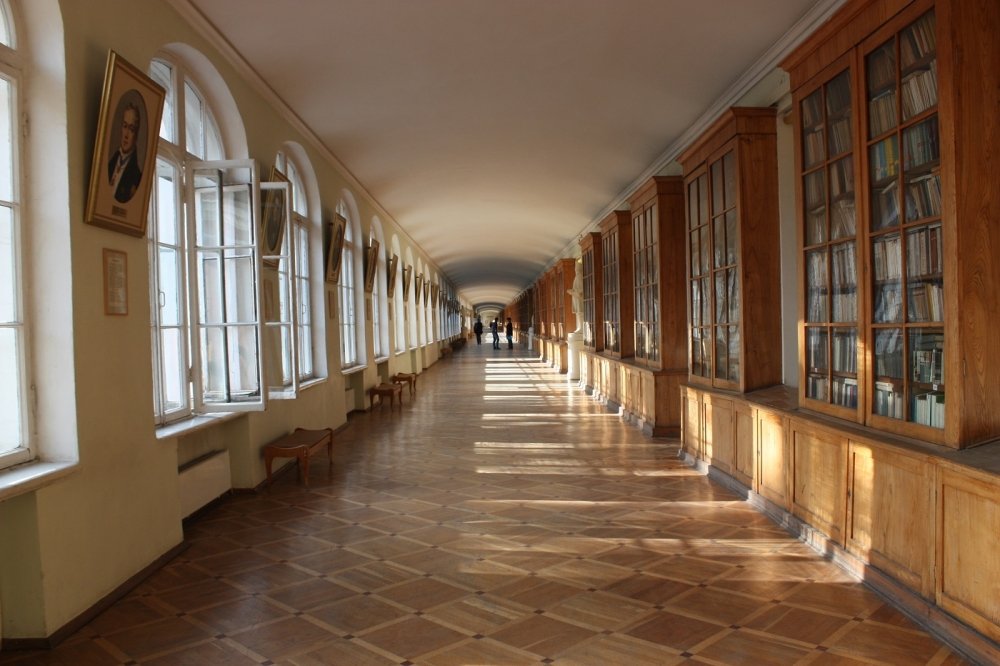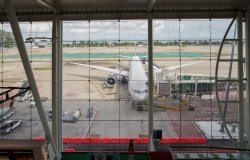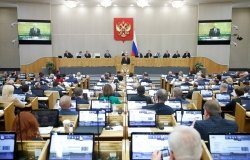
A blog of the Kennan Institute
The End of Liberal Arts at Russian Universities

St. Petersburg State University’s recent decision to terminate its liberal studies program was an inevitable but disappointing inflection point in the protracted saga of Russia’s engagements with Western higher education institutions and its subsequent insular, anti-Western turn.
On July 16, St. Petersburg State University announced that it was canceling its Liberal Arts and Studies program, also known as Smolny College. The decision to end the program was accompanied by a new degree plan for an arts and humanities program but lacking the key “liberal studies” aspects. The new plan is significantly narrower in scope, offering fewer courses for students to choose from and reducing the number of English-language courses from twenty-one to just two.
According to university administrators, the decision to end the liberal studies program was made to comply with the Federal Educational Standard of Higher Education to keep accreditation for some sort of revised program. Members of the program were alerted that changes were being considered in October 2022, but the decision to end the liberal studies program was formally announced only in July of this year.
The decision was an expected but distinct shift from the more liberal model of Russian higher education policy that emerged after the collapse of the Soviet Union. It is another example of the increasingly anti-Western agenda being pursued in the country in general and in higher education in particular, and implies that future cooperation between Russia and Western academic institutions could be even less likely, even after the conflict ends.
The Collaboration with Bard College
In the 1990s, St. Petersburg State University pioneered Russian collaboration with foreign universities. By 1997 the university had created agreements with forty universities and had recruited over 1,000 international students to its campus. Among those agreements was a partnership with Bard College, which created Smolny College and laid the foundations for what would become the first liberal studies program in Russia. The first class enrolled in the 1999–2000 academic year.
The Bard-Smolny program provided a dual American and Russian degree for enrolled students. The program itself represented a clear split from the methods and pedagogy of the Soviet system, introducing a more interdisciplinary approach. International partnerships of this sort indicated that St. Petersburg State University was attempting to encourage an open-minded and collaborative educational experience for its students. In fostering this academic environment, it would raise the profile of an already renowned Russian university to a global scale.
Despite the clear popularity that Smolny College enjoyed as a result of the liberal studies approach and the college’s success in recruiting foreign students, the gradual tightening of higher education policy in the past decade and the crackdown on dissenting voices and academic freedom had their own ripple effects at the university.
The largest such blow to St. Petersburg State University’s liberal studies program came in 2021, when its Western partner, Bard College, was declared an “undesirable organization.” The declaration led the Russian institution to immediately cut ties with Bard College after a twenty-five-year partnership. All exchange programs between the universities ended abruptly.
The cancellation of the liberal studies program is perhaps best understood not as an unexpected move by university administration but rather as a coda to the events of 2021. Yet this development symbolically closes the door on the liberal mission once espoused by St. Petersburg State University and its leadership.
Within the university, there has been internal pushback. The Save Smolny campaign provides updates on how the liberal studies program at St. Petersburg State has declined since the end of its partnership with Bard, including the departure of twenty-five faculty members in the last academic year. This group has taken action with open letters and meetings to discuss the future of the college. In addition to internal activism, former faculty from Smolny have created Smolny Beyond Borders, a virtual educational resource for students displaced since the war.
Ministry of Higher Education Policies
Despite these efforts, policy crafted by the Ministry of Higher Education has increasingly moved away from a liberal education model. The priorities of the ministry have shifted in the past decade from encouraging international collaboration and partnerships with the aim of putting Russian institutions at the top of university rankings to recommending that faculty from these same universities report on interactions with their foreign counterparts, to ending partnerships with Western institutions entirely, in part before the war, but especially after Russia’s exit from the Bologna Process in 2022.
Instead, the Ministry of Higher Education has adopted a more insular policy, promoting science and innovation at startups within universities and eschewing former collaborations with Western institutions. Collaboration has continued eastward and with BRICS nations, but the attention to the partnerships that defined much of the ministry’s educational diplomacy over the past thirty years disappeared after the beginning of the full-scale invasion of Ukraine. Now it seems that even the legacy of those collaborations—in this case, the few liberal studies programs in the country—is eroding.
The end of St. Petersburg State University’s liberal studies program raises the question of what educational diplomacy might look like when Russia’s war in Ukraine does end, and what the government and university leaders will have to do to rebuild ties slashed because of the conflict. As Russian universities make headlines for cracking down on free speech and ending legacy programs within the walls of their institutions, it’s increasingly murky what institutional mechanisms for partnership will still exist after the war, to say nothing of whether the West will want to reestablish those partnerships.
More urgently than the fate of any international partnership, it poses the question of where the students and faculty of these universities will be able to freely express themselves and voice their opinions without the support of their own departments, institutions, and the Ministry of Higher Education. The damage caused by university policy over the past decade has undone thirty years of progress and will undoubtedly have ripple effects in Russian higher education for decades to come.
The opinions expressed in this article are those solely of the author and do not reflect the views of the Kennan Institute.
See our newest content first.
Subscribe to receive the latest analysis from the Russia File blog.
About the Author

Victoria Pardini
Victoria Pardini is a Program Associate at the Kennan Institute. Prior to joining the Wilson Center, Victoria served as a Fulbright English Teaching Assistant for one year in Ukhta, Komi Republic, Russia.
Read More
Kennan Institute
The Kennan Institute is the premier US center for advanced research on Russia and Eurasia and the oldest and largest regional program at the Woodrow Wilson International Center for Scholars. The Kennan Institute is committed to improving American understanding of Russia, Ukraine, Central Asia, the Caucasus, and the surrounding region though research and exchange. Read more










